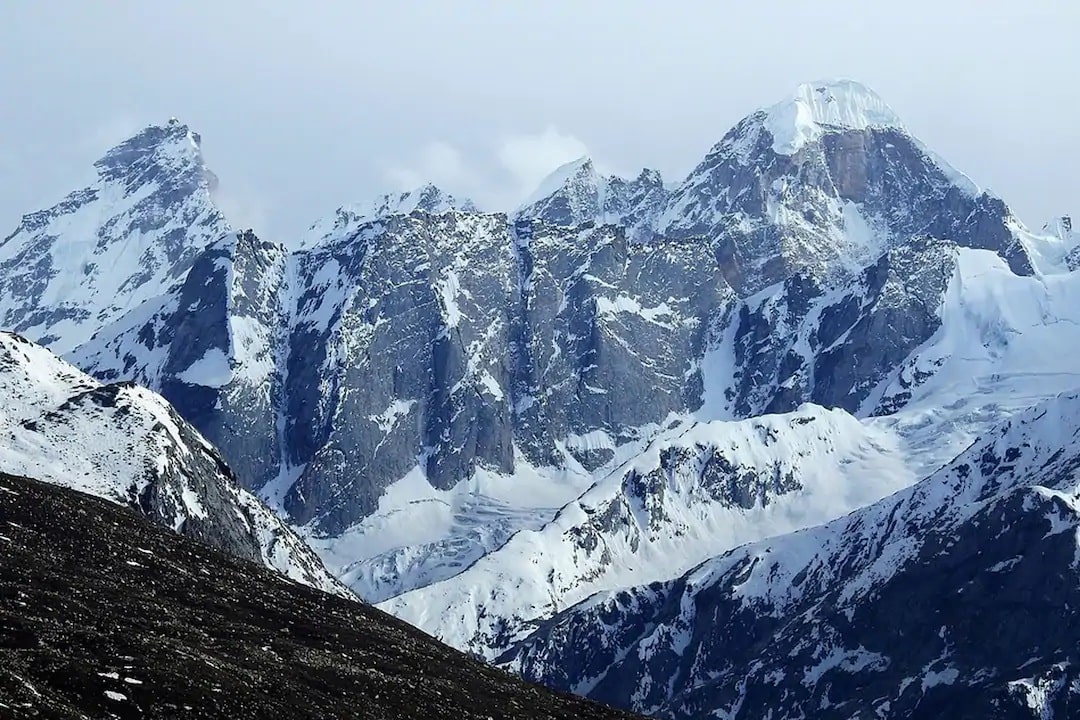

The area under snow cover in Himachal Pradesh has declined by 15%
Shimla: The adverse impact of climate change and global warming in the Himalayas is not only being felt in the pattern of temperature fluctuations, dry spells, unseasonal rains and thunderstorms but a considerable decline in the snow cover as well which is a cause for grave concern.
A study conducted by the state centre on Climate Change, under the department of Science, Technology and Environment in Himachal Pradesh has revealed a 14.5 % decline in the snow cover across the Himalayan region. The report was released here on Saturday.
Confirming this, D C Rana, Director Science, Technology and Environment, said the study, which evaluated the four major river basins of Chenab, Beas, Ravi, and Satluj, compared the monthly average snow cover in the 2022-23 winter season to the previous year.
Approximately one-third of the state’s total geographical area remains covered in thick snow during this season. This is crucial for sustaining the discharge of major rivers like Chenab, Beas, Ravi, Satluj, and their tributaries.
However, there has been a gradual decline in the number of snow days during the winters and also faster melting of snow at higher altitudes due to rising temperatures. A decline in the snow cover reduces the amount of water that will flow into the rivers This is a matter of serious concern not only in the hill state but also the plains where the agriculture and other livelihood means are directly dependent on the flow of in the rivers.
The researchers, who were asked to map the extent of snow cover in different river basins from October to April have finalised their report.
During the peak winter months of December to February, all four basins exhibited negative trends compared to the previous year, with Ravi and Sutlej being the most affected.
For instance, in October, Chenab experienced a 36% decline, Ravi saw a 54% decline, Satluj recorded a 27% decline, while Beas witnessed a slight enhancement of 3%.
In November, Chenab and Beas showed enhancements of 5% and 21%, respectively, whereas Ravi and Sutlej recorded declines of 3% and 22%.
The decline in snow cover persisted in December, with Satluj basin witnessing a significant 56% reduction, while Chenab had the smallest decline of 10%. January and February followed a similar pattern, with all basins experiencing declines ranging from 3% to 38%. In March, the declining trend continued with 2% to 7% decreases across all basins.
However, as the ablation period began in April, an overall enhancement in snow cover was observed in each basin. Chenab, Beas, Ravi, and Satluj recorded enhancements of 22%, 39%, 54%, and 29%, respectively, compared to the previous year. Chenab accounted for 85% of the basin area, followed by Beas (51%), Ravi (33%), and Satluj (43%) in terms of snow cover area during April 2023.
“ This means the whole year we had a negative trend all over .There was no snowfall for almost 11 months .The snowfall was recorded only in April 2023” said Dr S S Randhawa, a principal scientist, who led the study.
When contacted Naresh Chauhan, Principal advisor (Media) to the Chief Minister said “ though he has not seen the reports as yet it is certainly a matter of grave concern as we are seeing such changes in the climate over the past few years.
“ The impact is far more serious on the crops ,vegetables and fruits. Apple crop has suffered a major damage due to hailstorm , thunderstorm, rains and freak weather.The rising temperatures in the higher Himalayan region are affecting the state’s glaciers, leading to mass loss”
There is a shift in the snowfall patterns during winters, which impacts river discharge during the peak summer season.
The ongoing "Haqooq Do, Dam Banao Tehreek" protest, led by Amir Quaid, entered its 25th…
The Indian Space Research Organisation on Thursday announced the successful completion of its SpaDeX mission's…
Taiwan's Ministry of National Defence (MND) reported 20 sorties of People's Liberation Army (PLA) aircraft,…
Prime Minister Narendra Modi and his Mauritius counterpart Navinchandra Ramgoolam have agreed to facilitate trade…
Baloch Human Rights Council Information Secretary Khurshid Ahmed on Thursday said that the Jaffar Express…
The Bangladesh Hindu Buddhist Christian Unity Council, the largest minority group in Bangladesh, claimed on…